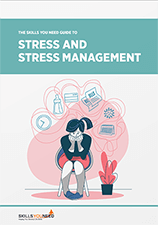How to Overcome Stress at University
A Practical Guide
See also: Top Tips to Manage Stress
University is an exciting and fun time for the majority of students in the UK. In a survey, of 2,460 students, conducted by The Student Housing Company, 82% of respondents stated that they were happy at their chosen university.
But plenty of students still suffer from stress and mental health issues, which can affect their studies and lives at university.
In the same survey, 96% of students admitted to experiencing stress, and 56% claimed that they feel stressed constantly. 71% of students also stated that they have suffered from a mental health issue at university.
The survey also revealed that there are several key factors that can induce stress at university, such as exams, finances, homesickness and graduation. It is therefore important to take care of yourself at university and make sure that stress triggers don’t reduce the quality of your life.
Getting Used to University
University can be completely different from school or college.
At university you have to be independent, organising your finances and housework around your studies, in addition to any part-time jobs you might take on. Sounds simple, but this can take some adjusting to, especially during your first year.
In addition to this, the teaching formats and learning methods at university are very different from what you’ve grown used to at school and college. There are far fewer contact hours, which means that you will be working independently most of the time and have to organise your own learning, rather than being taught directly by a lecturer.
To adjust to this as quickly as possible, access your lecture schedule as soon as you can. This way, you can plan your days around your lectures and keep on top of your studies. It is also a good idea to check your exam or assignment deadlines when you can, so that you can plan your studies around your lectures and your free time.

Organising Your Finances
The thought of organising your own finances can be overwhelming, especially when you have to think about tuition fees, maintenance loans and living costs. Here are a few tips to get by:
Save on travel. Take advantage of the many discounts and offers available to university students on buses, trains and trams to cut your costs. Many students also like to save money and get some exercise by simply walking to campus when they can.
Cook sensibly. By getting some basic spices, herbs and cooking ingredients at the start of your term, you will be able to cook plenty of cheap and healthy recipes for a relatively cheap price. Remember, you don’t need to eat takeaways all the time! Buying recipe ingredients and cooking at home is usually the cheapest and healthiest option.
Make socialising cheap. There are plenty of opportunities to socialise and make friends at uni, but you don’t have to break the bank. If you’re looking for a great night out, most bars have cheap student nights and plenty of restaurants have good student deals too.
Keep an eye on your finances. It is easy to spend more than you plan to, so it’s important to budget as soon as you receive your student loan, and to check your balance regularly – that way, you’ll determine what you can afford.
Overcoming Homesickness
When you go to uni, it will probably be the first time you “fly the nest”, and it can be difficult to leave friends and family behind. Moving to a new, unfamiliar place can be scary too, especially because you’ll be completely independent and studying hard for exams.
To overcome homesickness, push yourself to make new friends and have fun. Don’t hide away – knock on your neighbour's door and get chatting. There are also plenty of societies and groups you can get involved with. Whatever you like to do in your spare time, it is highly likely that your university will have a social group dedicated to your favourite hobby!
University is about making new mates, but it’s also about keeping in touch with your old friends. Make sure you catch up with friends and family at home during the holidays and at weekends, whether you’re visiting or just calling them. This is an effective way to keep homesickness at bay, and keep in touch with everyone.
Life After University
If you’re in your final year, thinking about what you’ll be doing after uni can be stressful too, so it’s important to think ahead. Consider what type of industry or career would suit you and your qualifications. When you have decided on a career, try to get some work experience during the holidays or on a part-time basis while you study. Most work experience is unpaid, but don’t be put off by this. Your future employer will want to see experience on your CV as well as your degree.
If you haven’t decided on a career yet, don’t panic! Many graduates take a little time out after uni to travel or volunteer abroad. It’s a great way to see the world and consider what you’ll do in your career later on.
Getting the Help You Need
Unfortunately, there is still a lot of stigma associated with stress and mental health problems, but that shouldn't deter you from getting the help you need. Don’t be ashamed to speak to trusted friends and family members about low mood, anxiety or stress. By talking your problems through, you can work towards overcoming them, and you’ll get some really good advice too.
What’s more, many universities offer counselling or other mental health services. Find out what sort of help is on offer to you and take full advantage of it.
Further Reading from Skills You Need
The Skills You Need Guide to Stress and Stress Management
Understand and Manage Stress in Your Life
Learn more about the nature of stress and how you can effectively cope with stress at work, at home and in life generally. The Skills You Need Guide to Stress and Stress Management eBook covers all you need to know to help you through those stressful times and become more resilient.
Coping with Stress
University is a unique and exciting experience, so don’t allow stress or mental health issues to drag you down and ruin your time as a student.
About the Author
The Student Housing Company provides thousands of students with comfortable and secure accommodation across the UK, with developments in the most vibrant and exciting student areas.


